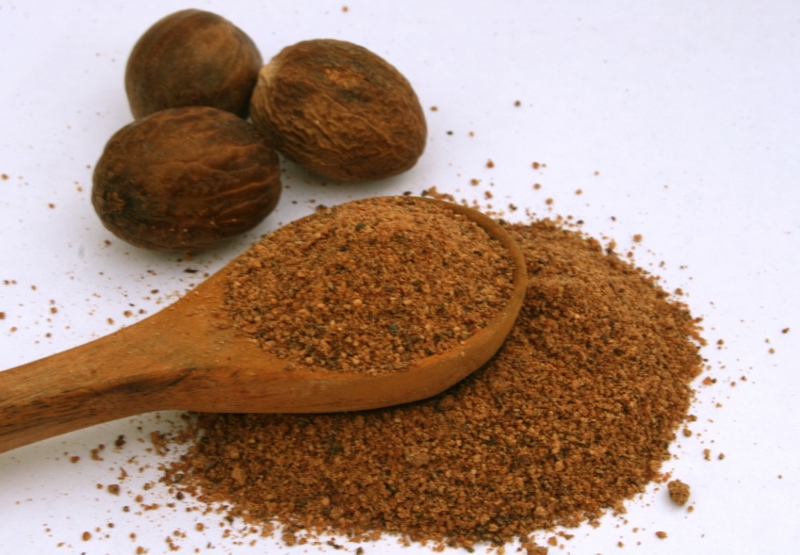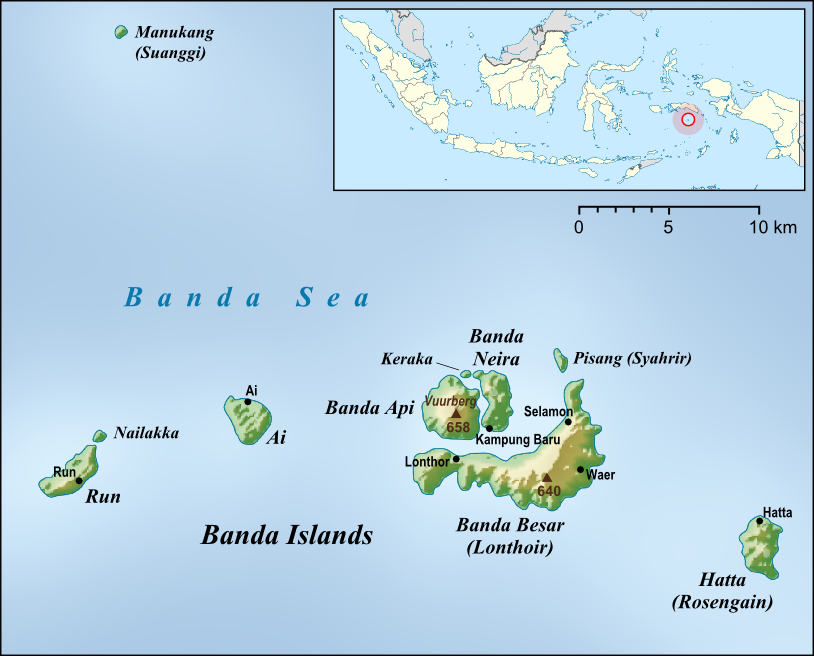All About Nutmeg
General
Nutmeg begins its life cycle as the seed of leafy, yellow-flowered trees in the Myristica genus. The nutmeg seed is protected by a hard outer shell. Once this shell is peeled back the nutmeg seed is revealed, wrapped in a thin, red, netlike membrane known as mace (itself a valued spice and supplement). Both can be distilled into powdered spices after a process of drying and pulverizing. Highly sought after throughout history for its unique smell and taste (and, in some parts of the world, its psychoactive properties), nutmeg is primarily sourced from Indonesia, India, and certain islands in the Caribbean.


Nutmeg has enhanced the flavor and hue of cuisines across the globe for centuries, and today the potent essential oil it yields once processed is a common additive to products in the pharmaceutical and perfumery fields. In antiquity, nutmeg was grown solely on the island of Banda, Indonesia, and traded across the world by early Arab merchant sailors. The location of Banda was a fiercely guarded secret, and as a result nutmeg became a prized and expensive commodity in the ancient world. In the 1600s the island of Banda was caught up in the savage Dutch-English struggle for trade supremacy ( the Netherlands remains one of the world’s principle re-exporters of nutmeg), and remained contested for centuries until the British transplanted the Myristica tree to many of the locations which produce it today.
Nutmeg has played a role in the medical traditions of many cultures. It has been used as an antibacterial agent in dentistry for centuries, and was classically prescribed to treat skin disorders, insomnia (thanks to its high magnesium content), lower blood pressure, and ease digestive ailments. Although the FDA does not currently recognize nutmeg as possessing curative properties, it has been noted that regions of the world in which nutmeg (and other spices) are widely consumed exhibit far fewer instances of cancer than the United States, in which the consumption of nutmeg is comparatively quite low. Preliminary studies have indicated that nutmeg’s antimicrobial qualities may be effective in suppressing the gut microbiota that are believed to contribute to colon cancer, the most common variety of cancer and the 3rd leading cause of cancer mortality. Another study showed that dosages of nutmeg distillate reduced cholesterol levels in test animals. These findings suggest that the anti-inflammatory and antioxidant qualities of nutmeg are potent, and that we have only scratched the surface of its medicinal import.
Nutmeg is a vital and vibrant component of Jahmu, and in concert with our other spices provides not only an unusually delicious drink but also a compound that addresses the most foundational elements of health and well being. Check out our other spice profiles for more historical medical background on these amazing substances!
Sources:
Li F, Yang XW, Krausz KW, Nichols RG, Xu W, Patterson AD, Gonzalez FJ. “Modulation of colon cancer by nutmeg.” Journal of Proteome Research. 2015 Apr 3;14(4):1937-46. doi: 10.1021/pr5013152. Epub 2015 Mar 10. Accessed the abstract on Pubmed.gov on July 29, 2015
Onyenibe NS, Fowokemi KT, Emmanuel OB. “African Nutmeg (Monodora Myristica) Lowers Cholesterol and Modulates Lipid Peroxidation in Experimentally Induced Hypercholesterolemic Male Wistar Rats.” International Journal of Biomedical Sciences. 2015 Jun;11(2):86-92. Accessed on Pubmed.gov on July 29, 2015
“Health Benefits of Nutmeg” Organic Information Services Pvt Ltd, a subsidiary of RuralTech Services. Accesed article on organicfacts.net on July 29, 2015
Map Source: Lencer
